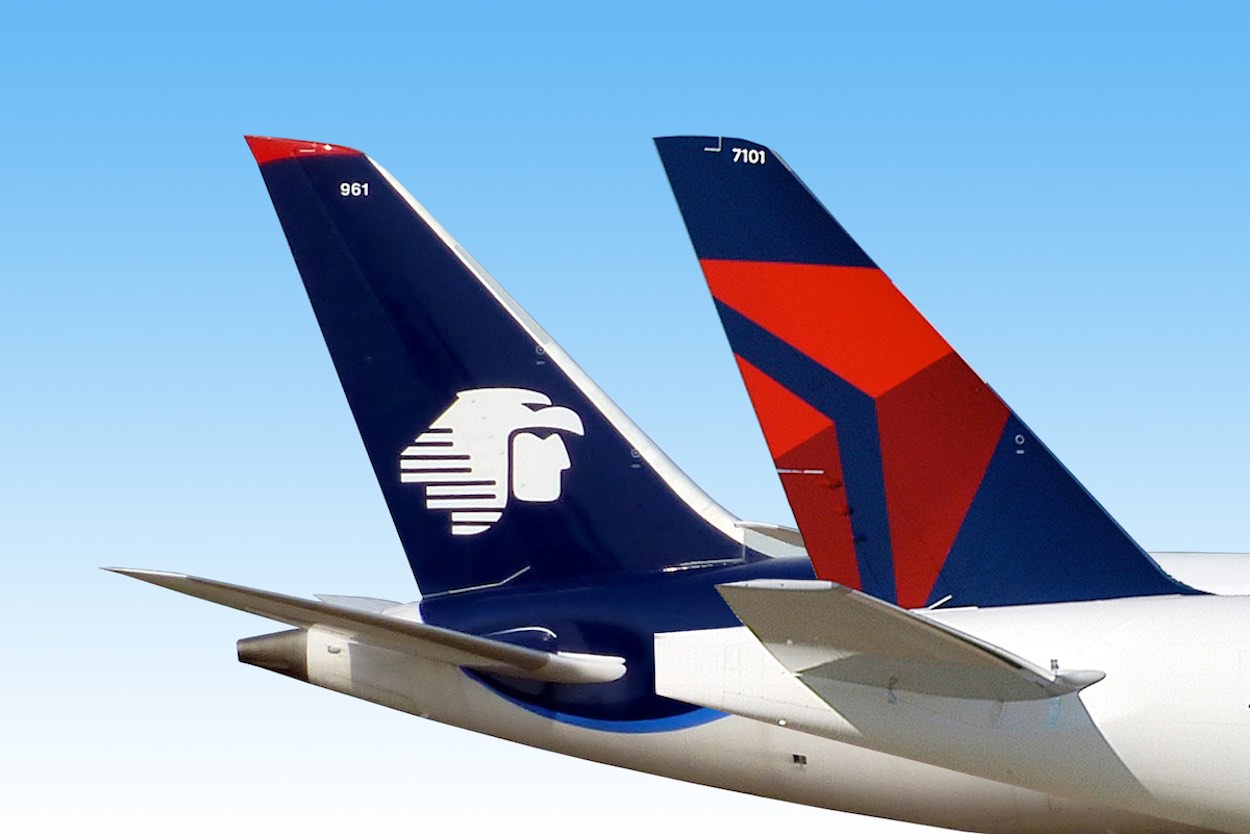Trump Administration Revokes Delta–Aeroméxico Alliance, Citing Mexico’s Unfair Aviation Rules

Last week, the Trump administration delivered a blow to the Delta Air Lines–Aeroméxico joint venture: their antitrust immunity is being revoked. But the partnership will persist and it is worth looking at what’s really going on and what it might mean for travelers.
DOT Orders Delta–Aeroméxico To End Joint Venture: Antitrust Immunity Revoked Jan. 1, 2026
The U.S. Department of Transportation has ordered Delta Air Lines and Aeroméxico to unwind their joint venture agreement by January 1, 2026, citing concerns that Mexico’s government has distorted competition in the U.S.–Mexico City market. The immunity granted in 2016, which allowed the two carriers to set prices, schedules, and share revenue across borders, will be terminated under the ruling.
Deteriorating conditions in Mexico City’s aviation policy were a central complaint. In particular: slot allocation at Benito Juárez International Airport (MEX) that disadvantaged U.S. carriers, forced relocation of cargo operations to the less convenient Felipe Ángeles Airport (NLU), and allegations of non-transparent practices that favored domestic airlines.
DOT and the U.S. Department of Justice both supported the move. DOJ had already flagged concerns in earlier filings that the venture’s privileges might be harming competition, raising prices, limiting flight options, and reducing airline quality for consumers.
What The U.S. Government Claims
The Final Order can be viewed on Regulations.gov, under docket DOT-OST-2015-0070-0354. It lays out that despite some corrective steps proposed by Mexican authorities, including promises to return confiscated slots, DOT concluded those measures were insufficient and that the imbalance continues.
Delta and Aeromexico have materially less incentive or ability to deliver public benefits that would not otherwise be possible without a grant of anti-trust immunity given the restrictions at MEX and Aeromexico’s hub at MEX.
It adds, “The Government of Mexico is not compliant with numerous provisions of the U.S.-Mexico Air Transport Agreement and thus is not acting consistently with all elements of a liberalized Open Skies agreement. These violations have deleterious implications for airline competition in the U.S.-Mexico market.”
What This Means For Travelers
- Travelers may see changes in frequencies, routes, or fares beginning January 2026 as Delta and Aeroméxico unwind shared pricing and scheduling (Delta warns routes will be cut and smaller aircraft used)
- The codeshare agreements, loyalty partnerships, and flight operations will continue for now—but without the legal protections of the joint venture
- If Mexico follows through with reforms (transparent slot allocation, fair access at MEX, more balanced regulation) the passage to re-establishing some of the joint venture’s benefits could be possible later
- But the Order makes clear that such changes would have to be concrete and consistently enforced, practically meaning it would be some time before this could return, even if Mexico suddenly kowtows to every U.S. demand
Travelers can still expect to earn and redeem Delta SkyMiles on Aeromexico, use Aeromexico lounges (if open), and enjoy additional SkyTeam perks like priority check-in and boarding for elite frequent flyers.
CONCLUSION
The DOT’s decision to revoke antitrust immunity for Delta-Aeroméxico is a major shift in U.S.–Mexico aviation policy. Oh yes, the implications for consumers like fewer coordinated schedules and possibly reduced route options could sting. But this move seems reasonable to me where government regulation in Mexico has given unfair advantages to domestic carriers at the cost of competition. Time will tell whether Mexico fixes its policies enough to allow for restored cooperation or whether Delta and Aeroméxico will move forward with more independent operations. Either way, we will see change starting in 2026.